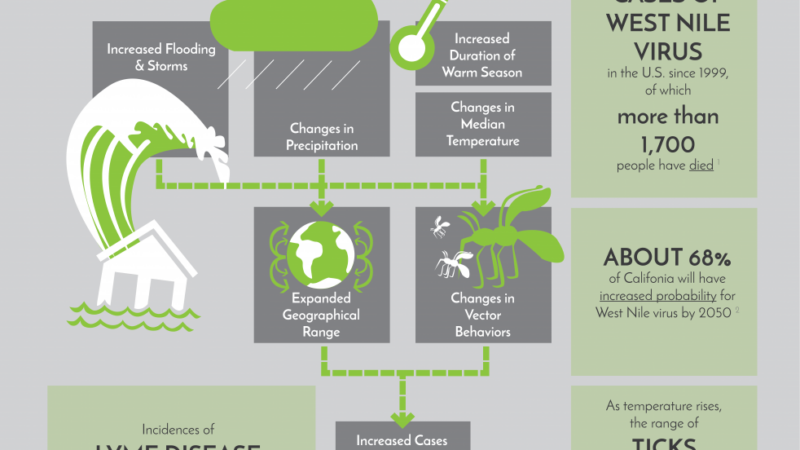Black flies
Vector-borne Diseases & Climate Change
Climate change creates new risks, particularly in the United States, for human exposure to vector-borne diseases (VBDs) — diseases which are transmitted to humans through the bites of insects (referred to as vectors) that carry the disease-causing pathogens. Common vectors include mosquitoes, ticks, and flies.
Climate change creates new uncertainties about the spread of VBDs such as the Zika virus, dengue fever, malaria, and Lyme disease by altering conditions that affect the development and dynamics of the disease vectors and the pathogens they carry.
Biological Control of Mosquitoes and Biting Flies Improves Quality of Life for First Nations Community
Many remote Aboriginal communities in Canada have few amenities, but with the recent settlement of land claims and the management of Native-owned natural resources, some …
A Year-Round Approach to Black Fly Control Yields Big Results for Twin Falls, Idaho
When Kirk Tubbs was hired on as the manager of the newly formed Twin Falls County Pest Abatement District four years ago, he wasn’t quite …
